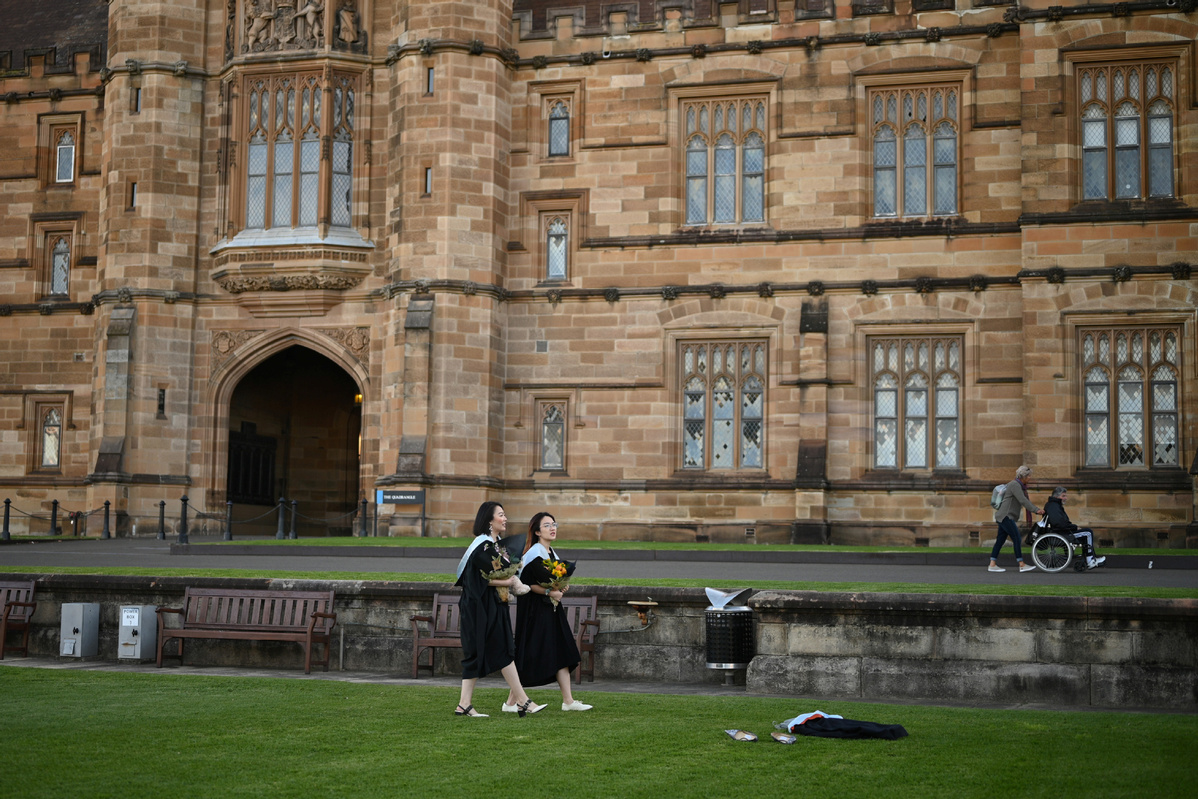Australia's China stance under fire
By KARL WILSON in Sydney | CHINA DAILY | Updated: 2020-09-02 07:59

Moves to ward off perceived foreign meddling branded Cold War hysteria
Australia's current attitude toward China has been described by local analysts as "frightening" and smacking of Cold War hysteria.
Their comments came on the heels of an Australian government announcement that it will conduct an inquiry into foreign interference in Australian universities.
The government had stated it will introduce legislation that gives it the sole responsibility to oversee all agreements between the states, territories, local councils, and universities with foreign entities.
Any agreement it deems as acting against the national interest will be terminated, including existing agreements.
The plan for the universities inquiry is seen as another thinly disguised move against China in what is perceived as Beijing's attempts to exert undue influence in Australian politics and to recruit academics-allegations that have been strenuously rejected by China.
Australian Home Affairs Minister Peter Dutton announced on Aug 30 that the Parliamentary Joint Committee on Intelligence and Security, or PJCIS, will conduct the inquiry.
The irony is that the inquiry will be headed by PJCIS Chairman Andrew Hastie, a former Special Air Service officer. This hardly makes it an unbiased exercise, according to analysts.
The government has exclusive responsibility for conducting Australia's foreign affairs while entities like the states and universities have been free to enter into their own arrangements in areas from trade and economic cooperation to cultural collaboration and university research partnerships.
This has been a loose arrangement that has been governed by various protocols and known to the federal government. But now the federal government wants to oversee all arrangements with foreign entities and give it the power to terminate agreements if these are not deemed in the national interest.
Professor Jane Golley, director of the Australian Centre on China in the World at the Australian National University in Canberra, said: "The relationship seems to have deteriorated to such a low point that both governments are questioning whether they can trust each other."
She said the proposed legislation will not only target state, territory, and local governments, but also the university sector, which is already tightly regulated in the way it conducts its business and research arrangements with foreign entities.
"I would not be a bit surprised if the Confucius Institutes are also in the firing line."
The primary role of the Confucius Institutes is to teach Chinese language and culture. At a time when Australia needs to develop a deeper understanding of China, right-wing ideologues are pushing to have the institutes closed as they see them as acting against the national interest by spreading propaganda.
But no one has yet to produce any evidence to confirm these allegations. There are 13 Confucius Institutes in Australia. At least 13 Australian universities have joint research projects with China that could be terminated once the legislation is passed.
In 2018, the state government of Victoria signed a memorandum of understanding with China's National Development and Reform Commission to work together on the Belt and Road Initiative. At that time, no one in Canberra raised any concerns. But now Canberra says it will tear up the memorandum.
Commercial agreement
As one academic, who did not want to be named, said: "Since when has building a road created a security threat against the national interest?"
James Laurenceson, director of the Australia-China Relations Institute at the University of Technology Sydney, said he doubted if the federal government can do anything about it as it is a commercial agreement. He said it was the same for the Port of Darwin's 99-year lease with Chinese company Landbridge.
"It is a private-sector commercial deal. The new legislation does not cover the private sector," Laurenceson said.
Hans Hendrischke, professor of Chinese Business and Management at the University of Sydney Business School, said: "From our perspective, the university has been in touch with Canberra on a constant basis regarding our foreign contacts, especially with China."
Hendrischke noted that the University of Sydney has an agreement with the Confucius Institute, and the institute is run as a joint venture. "So, whatever they do is supervised by a board that is public. Everything it does is above board," he said.
Research by The Australia Institute, a think tank, argues that the tension between Canberra and Beijing is largely due to "our" ignorance of China.
In Australia, there are only 20 academics and think tanks with expertise on China, and no specialist schools for training policymakers.
Although no one knows how many people are employed in the federal government to provide advice on China, our "stupid" approach reveals how little we understand it, said Allan Behm, head of the International and Security Affairs Program at The Australia Institute, in an interview with the New Daily website recently.
"Our politicians don't understand what they're dealing with. They don't have enough factual knowledge. They don't understand its history or culture." Behm said.
























